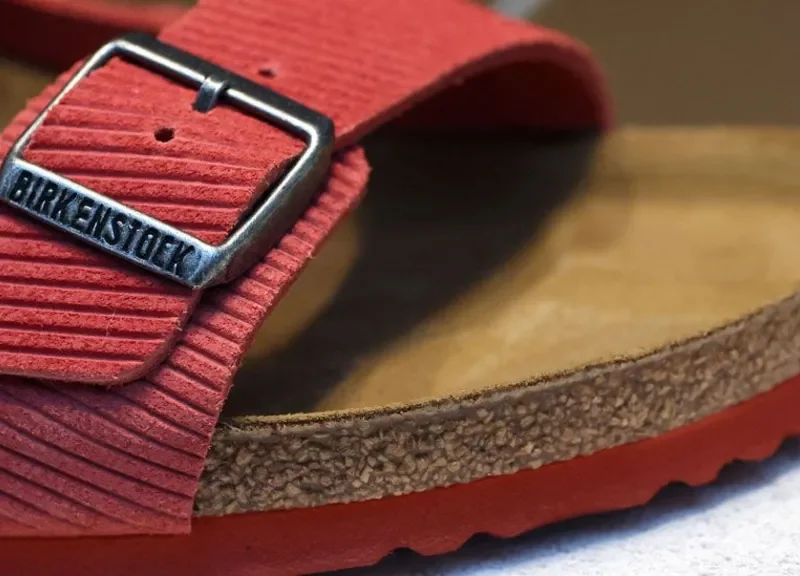A German court has ruled that Birkenstock sandals do not qualify as art, rejecting the company’s attempt to gain copyright protection for its footwear.
Birkenstock argued that its sandals should be classified as art, making them eligible for copyright protection, in an effort to prevent competitors from selling similar versions of its cork-soled designs. However, the court dismissed the claim, stating that the shoes are functional design items rather than artistic creations. The company called the decision a “missed opportunity” for intellectual property protection.
Once considered unfashionable, Birkenstocks have surged in popularity, especially after Margot Robbie wore a pink pair in the final scene of the 2023 Barbie movie. Known for their comfort and durability, the sandals have evolved since their 1960s leather-strapped origins, with various colors and strap styles emerging over time.
Despite initially being overlooked by the fashion industry, Birkenstocks gained recognition in the 1990s when supermodel Kate Moss sported them, and they have even made appearances at high-profile events like the Academy Awards. The brand went public in 2023, listing on the New York Stock Exchange with a valuation of approximately $8.6 billion—double its 2021 worth. Its widespread popularity has led to frequent imitation, prompting the company to pursue legal action.
In this case, Birkenstock sued three manufacturers and retailers to protect four of its sandal designs. Under German law, design and art are treated differently—design serves a functional purpose, while art must demonstrate a unique level of creativity. Copyright protection lasts 70 years after the creator’s death, whereas design protection extends for 25 years from its registration.
Shoemaker Karl Birkenstock, born in the 1930s, is still alive, and some of his designs are no longer protected under design laws. As a result, the company sought copyright protection by arguing that its footwear qualified as art. However, the court ruled the claim “unfounded,” with presiding judge Thomas Koch stating that copyright requires “a degree of design that shows individuality.”
Birkenstock responded by reaffirming its commitment to combating imitations through all available legal avenues. The ruling by Germany’s Federal Court of Justice is final, following mixed decisions from two lower courts—one initially siding with Birkenstock, while the second overturned that ruling.










